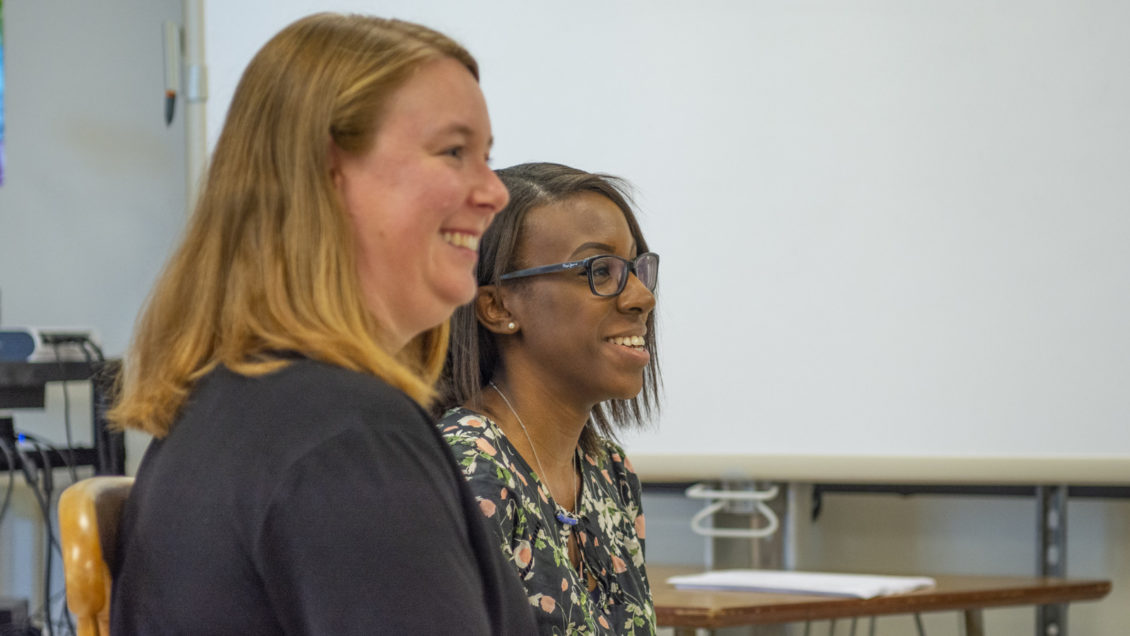The first class of South Carolina’s first university-led teacher residency program at Clemson is now more than halfway through their year-long residency experience in the classroom. We’ve taken the time to drop in on two sets of residents and master teachers along the way to get a sense of their day-to-day experience and learn how residents are progressing through the program.
Teacher resident Amanda Bluhm and her master teacher, Jennifer Eaton, previously discussed how they’ve both benefitted from a second teacher in their sixth-grade classroom at Mt. Lebanon Elementary. Bluhm specifically pointed out how a year in the classroom is better preparing her for her future career.
During a recent visit to Riverside High School, teacher resident Mia Bowman and her master teacher, Kim Pauls, discussed the rewards that come with discovering practical solutions to classroom issues. They also touched on residency as “a catalyst for professional growth” for both resident and master teacher. See an extended video featuring Pauls and Bowman below:
[vid origin=”youtube” vid_id=”QazbDQPFQ8Q” size=”full” align=”left”]
At the heart of the residency program is the College of Eduation‘s combined degree option for undergraduate education students. This degree option replaces student teaching in a student’s final undergraduate semester with graduate education classes, and the following year is comprised of a year-round teacher residency with an experienced master teacher who continuously gathers data about a resident’s progress to provide targeted support and feedback.
Residents spend the year-round residency in a district school, moving from a collaborative, co-teaching role in the classroom to an increasingly demanding, lead-teaching role. Using a variety of instructional coaching strategies, master teachers provide valuable insight into effective teaching methodologies, helping residents develop the knowledge and skills that come from years of experience. The residency experience does not center around the student’s living situation, but rather their learning under the guidance of a master teacher.
The residency program will see its graduates emerge after five years with both a bachelor’s and master’s degree in education as well as an extended, year-long student teaching experience, but development isn’t limited to residents. Master teachers are prepared with graduate coursework in instructional coaching, and their professional growth and retention also is a top priority for the program.
Clemson’s teacher residency program is housed in the College of Education’s Eugene T. Moore School of Education.
Get in touch and we will connect you with the author or another expert.
Or email us at news@clemson.edu

